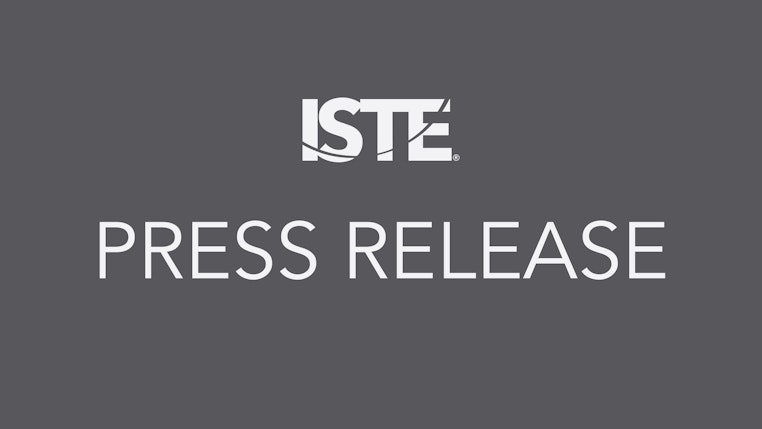New Survey: K-12 Educators Look to Peers, Learning Communities for Guidance on Edtech

WASHINGTON – The International Society for Technology in Education (ISTE) today released new findings from a survey on the views of ISTE Certified Educators on preparedness for effectively using technology for learning, digital citizenship and professional development.
More than 75 percent of respondents indicated teachers in their schools or districts are not prepared to effectively use the technology that now exists for learning. Despite this finding, learning from peers was a common thread in the results.
- When asked which type of professional development is the most impactful, 40 percent of respondents identified professional learning communities (PLCs).
- Non-district-led professional development and peers were identified as the top sources for learning new teaching techniques.
- When asked where they most frequently hear about innovative learning tools and techniques, respondents identified teaching experts they follow online and conferences.
- More than half of school-level educators and 35 percent of district-level educators said “more time” was the number one change that must happen in educator training and support to allow teachers to adapt to today’s learning environments effectively.
“The survey reinforces the need for high-quality, vendor-neutral professional learning that enables educators to use technology effectively in their classrooms,” said Joseph South, chief learning officer of ISTE. “We were thrilled to see that more than 99 percent of respondents felt that ISTE Certification not only prepared them to use technology effectively but instilled the confidence to lead professional development in their schools and districts.”
As the digital landscape continues to evolve, educators need to teach students how to be good digital citizens and support them in navigating the online world. The survey shows that 98 percent of respondents believe digital citizenship should be a priority in their school and district, but only 36 percent believe it currently is. In larger districts that have more than 25,000 students, only 50% of respondents felt that digital citizenship was treated as a priority. In districts with less than 5,000 students, only 28 percent thought digital citizenship was treated as a priority.
Two-thirds of the survey respondents believe that embedding digital citizenship into existing content lessons is the most effective approach to teaching it.
ISTE Certification for Educators is the only vendor-neutral, internationally recognized credential for educators who have demonstrated mastery of the educator section of the ISTE Standards. ISTE Certification focuses on pedagogy, not on tools or devices, and is designed to change educational practice for classroom educators, instructional designers, library media specialists, technology coaches, and educators in other roles.
The ISTE Certification Survey, which was fielded by Whiteboard Advisors in Summer 2022, surveyed nearly 300 ISTE Certified educators. Click here to see the full infographic.
About ISTE
The International Society for Technology in Education (ISTE) is a nonprofit organization that works with the global education community to accelerate innovation in education through the smart use of technology. ISTE sets a bold vision for education transformation through the ISTE Standards, a framework for rethinking education and creating innovative learning experiences. ISTE hosts ISTELive, one of the world’s most influential education events, and offers a wealth of professional learning opportunities focused on technology in education. For more information or to become an ISTE member, visit iste.org.







